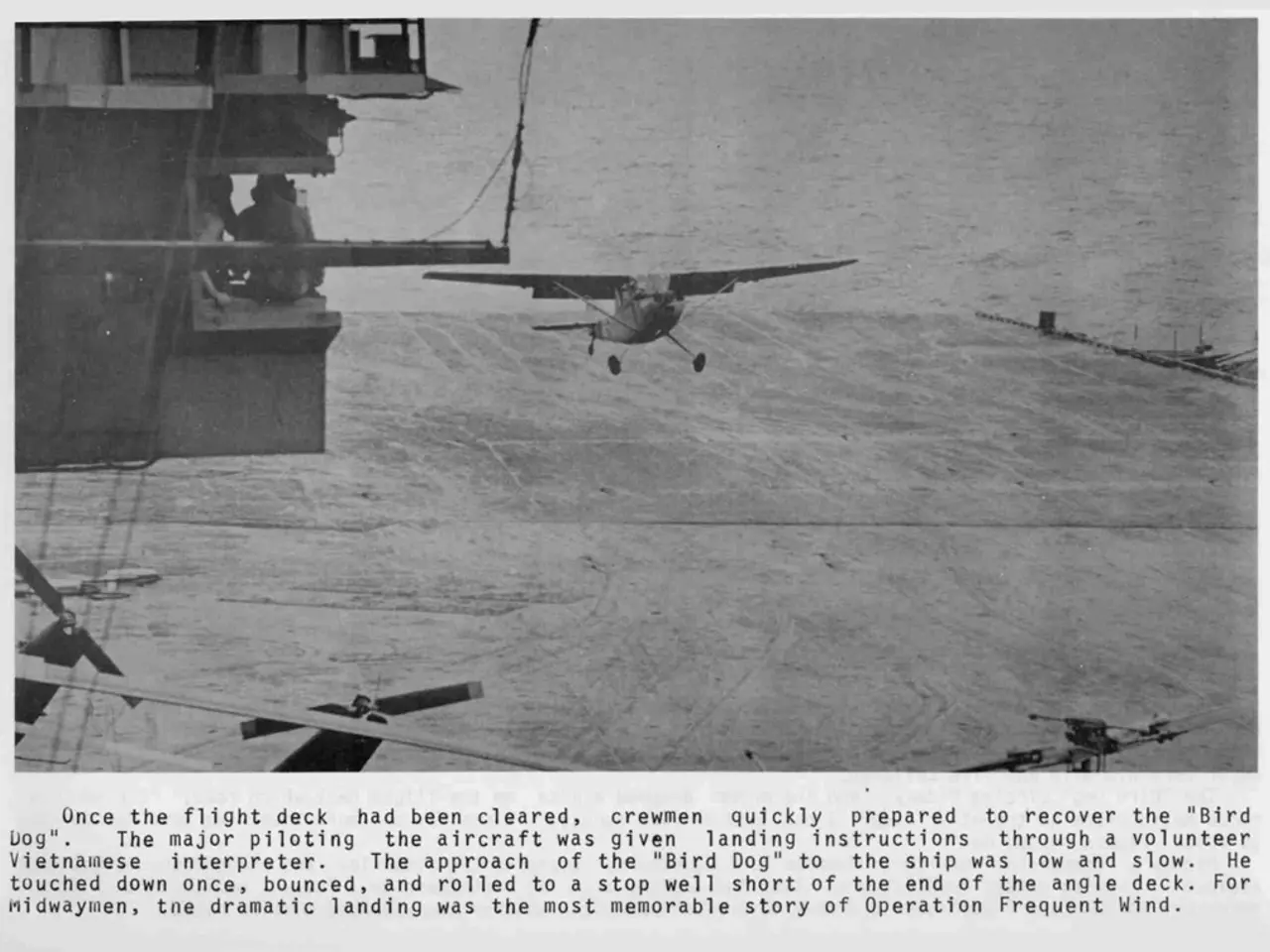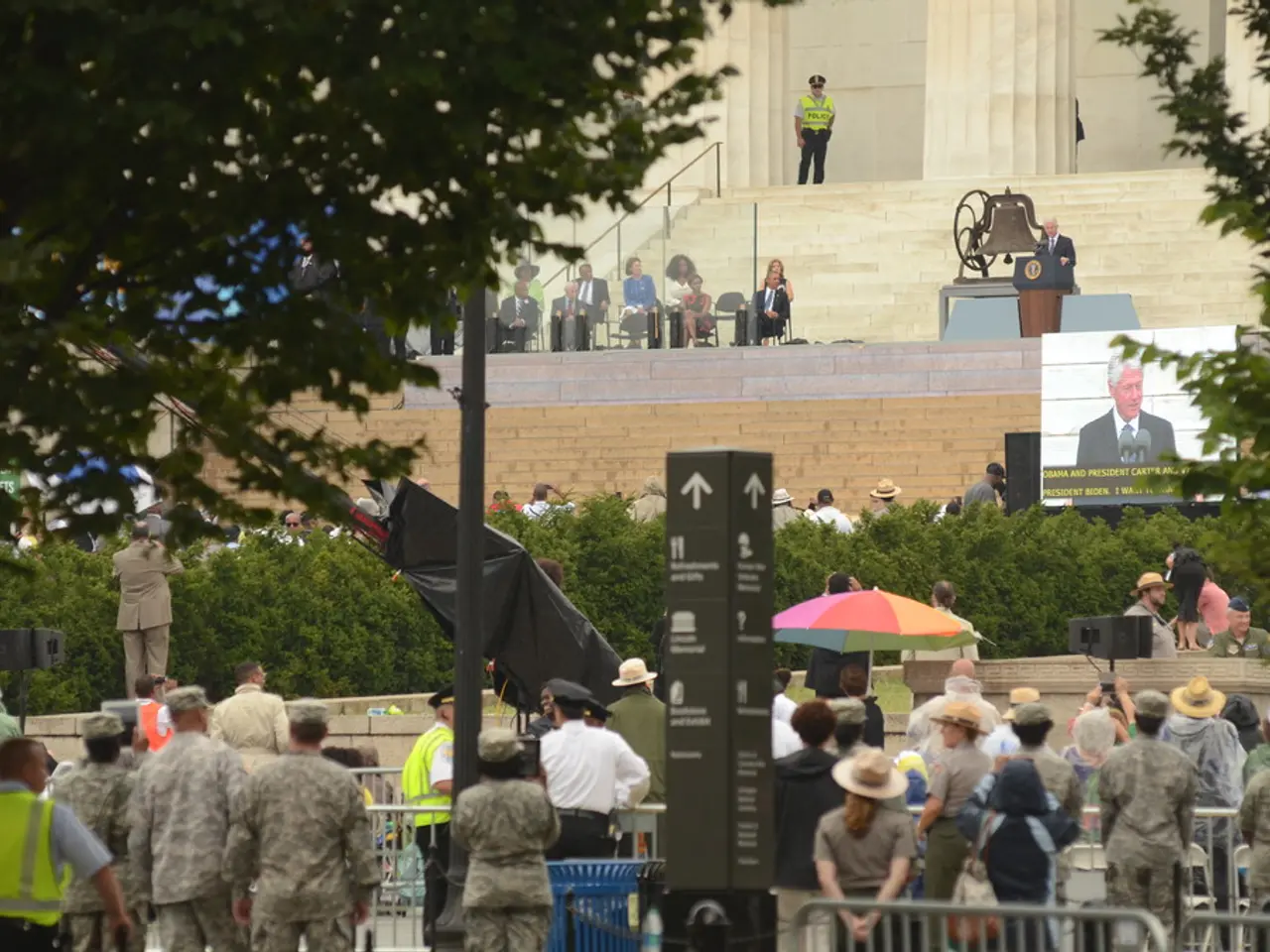Confessing to a Striking Defeat: Ishaq Dar Admits Indian Air Force Attacks on Pakistani Air Bases
Pakistani Deputy Prime Minister Confesses, under Camera, that Indian Air Strikes compelled Ceasefire Request; Video Available for Viewing
In a bombshell TV interview, Pakistan's Deputy Prime Minister Ishaq Dar spilled the beans about their country's desperate plea for a ceasefire with India last month following the devastating attacks on two key air bases.
During India's military operation in response to the Pahalgam terror attack, the Indian Air Force barraged the sensitive military compounds of Nur Khan air base in Rawalpindi and the Shorkot air base, also known as PAF Base Rafiqui, in Punjab province. This strategic assault, dubbed Operation Sindoor, took place in the early hours of May 8.
Speaking candidly, Dar admitted that the chaotic situation forced Pakistan to seek help from both the United States and Saudi Arabia. In his interview, he revealed, "India once again launched missile strikes at 2.30 am. They attacked the Nur Khan air base and Shorkot air base...Within 45 minutes, Saudi Prince Faisal called me. He asked if he was authorized to talk to India's External Affairs Minister S Jaishankar and convey that we are ready if they stop. I said yes, brother, you can."
The Nur Khan base, situated between Islamabad and Rawalpindi, serves multiple military purposes, including air operations and VIP aircraft. Social media footage depicted horrifying explosions and flames engulfing the base during Operation Sindoor.
In response to this military surge, Pakistan retaliated but India continued its precision strikes. The Indian action marked a serious intensification of the India-Pakistan tensions, drawing international attention. Dar's admission reveals an unprecedented acknowledgment of India's military prowess and the pressure it imposed on Islamabad to de-escalate the conflict.
Interestingly, Operation Sindoor showcased India's arsenal, including BrahMos cruise missiles, Rafale jets equipped with SCALP missiles and AASM Hammer bombs, and Israeli-made SkyStriker loitering munitions. This daring operation signaled a departure from India's previous strategic restraint, marking the advent of a new policy of "offensive defense" where India opts for measured, high-impact military reprisals designed to instill deterrence and impose punitive expenses upon Pakistan for cross-border terrorism.
The incident's aftermath saw an increase in tension yet a clearer deterrence posture between the two countries. The operation has marked a turning point in subcontinental geopolitics, with India's military actions executed with precision, proportionality, and political clarity, seeking to alter the cost-benefit analysis of terrorism and cross-border aggression. However, it's crucial to note that the operation may have also exposed critical vulnerabilities, creating a complex and evolving strategic environment.
- The admissions made by Pakistan's Deputy Prime Minister Ishaq Dar suggest a shift in the financial landscape of the region, as it appears that both the United States and Saudi Arabia were involved in diplomatic efforts to mediate the war-and-conflicts between India and Pakistan.
- The recent airbase attacks in Pakistan and India's subsequent military operation, Operation Sindoor, have raised general-news concerns about the potential impact on global finance markets, considering the strategic resources at play and the escalating tensions between the two countries.
- The crime-and-justice implications of the India-Pakistan tensions are not limited to the direct military actions; as the region struggles to maintain peace, the vulnerabilities exposed in the incident could become breeding grounds for further crimes and injustices.




